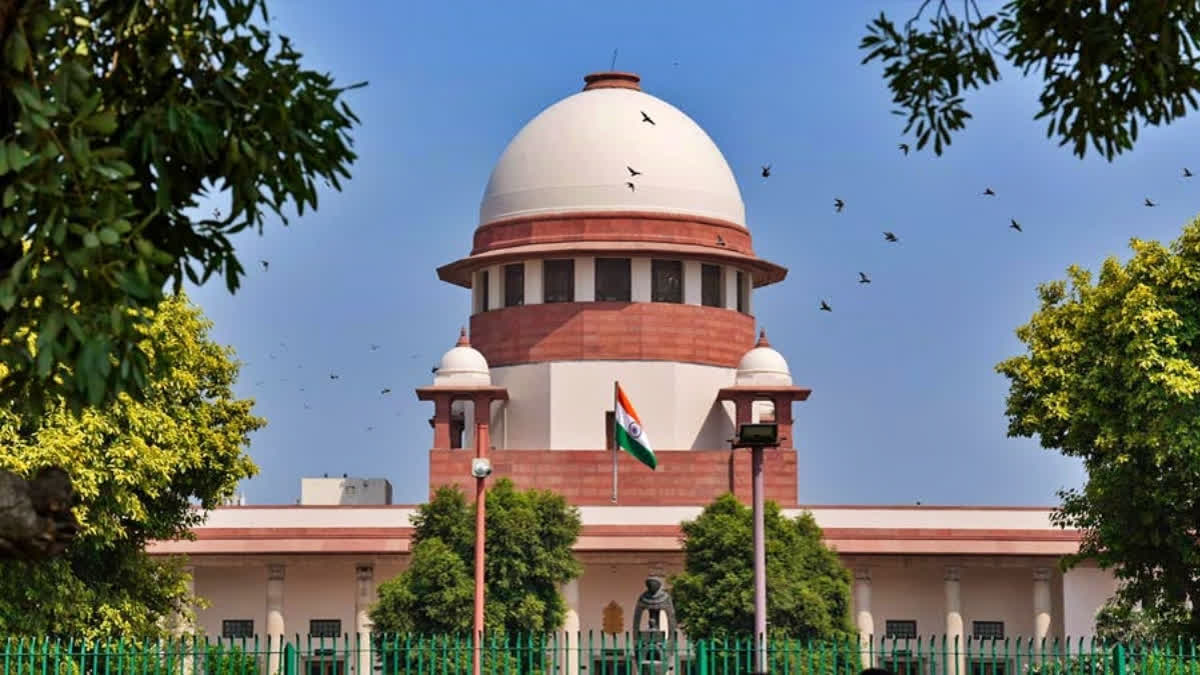New Delhi: The Supreme Court has said that extrajudicial confession is always a weak piece of evidence and there is serious doubt about the genuineness of the prosecution case regarding the extrajudicial confession.
The apex court made the remarks while acquitting a man from Tamil Nadu convicted for killing his wife. A bench comprising Justices Abhay S Oka and Sanjay Karol said, "Extrajudicial confession is always a weak piece of evidence and in this case...there is serious doubt about the genuineness of the prosecution case regarding the extrajudicial confession. Therefore, the prosecution case about the extra-judicial confession does not deserve acceptance”.
The top court doubted the prosecution's claim of extra-judicial confession made before a village administrative officer. It noted that as far as the alleged recovery of the dead body at the instance of the appellant is concerned, the dead body was recovered from a place which was accessible to all.
The top court noted that it is not the case of the prosecution that the place where the dead body was buried was accessible and known only to the appellant. "There is serious doubt about the genuineness of the prosecution case regarding the recovery of a dead body at the instance of the appellant and the recovery of the alleged instrument of the offence at the instance of the appellant," said the bench.
The top court said it is not possible to accept the case of the prosecution which is entirely based on the extrajudicial confession made by the appellant. "Thus, there was no legal evidence on record to convict the appellant. In any case, the guilt of the appellant has not been proved beyond a reasonable doubt," said the bench.
Also read: 'As if Centre wants': SC on some parts of draft SOP on summoning of govt officials
The bench noted that two months after the incident, the accused had allegedly confided in a village officer about the killing. "The incident took place on 29th May 2006 but the alleged extra-judicial confession was made on 10th August 2006. It is impossible to understand why would the appellant meet the Village Administrative Officer, who was a total stranger to him, more than two months after the incident for making a confession," said the bench, adding that officer and the petitioner were not known to each other till August 10, 2006.
"Normally an accused will confide only with a person in whom he has implicit faith. He would not go to a stranger to make a confession of guilt. The fact that the alleged confession was made by him more than two months after the incident makes it more suspicious," the bench said.
The apex court allowed an appeal by Moorthy challenging the Madras High Court's judgment (2009) which upheld the trial court's order (2008), convicting Moorthy under Sections 302 and 201 of the IPC and sentencing him to life imprisonment.
The top court noted that the prosecution relied upon the extra-judicial confession made by the petitioner before Ganesan Perumal, village administrative officer, in the presence of Tyagarajan Kannan. Secondly, the prosecution relied upon the recovery of the dead body and the stick allegedly used as a weapon of assault at the instance of the appellant.
Thirdly, according to the prosecution, the victim's skeleton was identified by two witnesses, the parents of the victim, on the basis of the clothes thereon. According to the prosecution case, the appellant suspected that the deceased had illicit intimacy with a person and on May 29, 2006, he took his wife to the bank of Ponnai River and assaulted her with a stick. Later, he buried the dead body at the same place.
Also read: SC junks West Bengal plea against CBI probe in municipality recruitment scam



